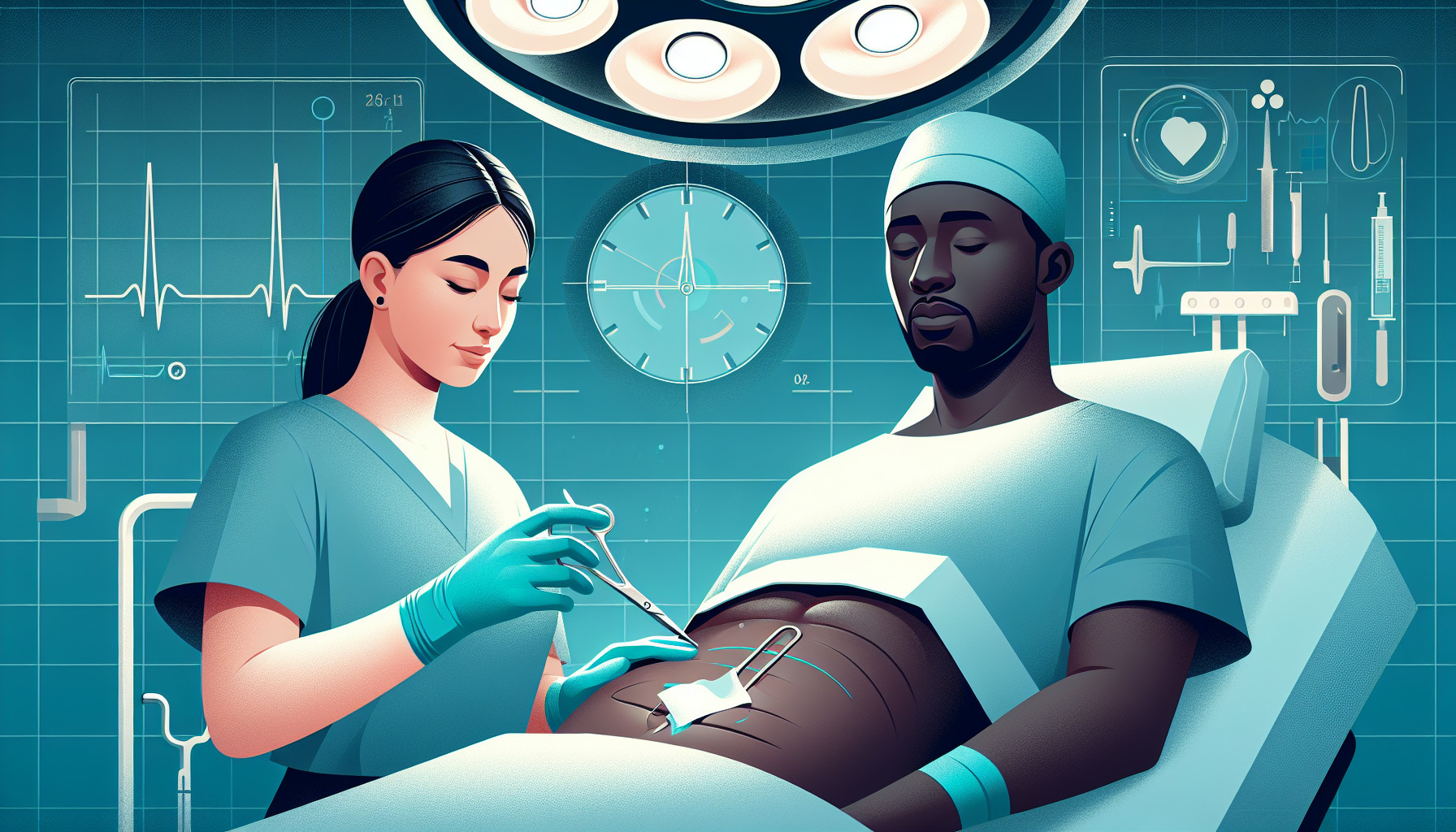Our Summary
This research paper is about the modern, evidence-based treatments for a common gastrointestinal condition called diverticular disease. This illness involves the development of small pouches in the lower part of the digestive tract, which can cause significant health problems. The researchers looked at scientific literature on this topic to give an updated overview of the best treatment strategies for a severe form of this disease, called acute diverticulitis.
The paper discusses how the use of antibiotics for early-stage diverticulitis (Hinchey I) is being questioned, and how draining abscesses for the next stage of the disease (Hinchey II) may not always be necessary. For more advanced stages of the disease (Hinchey III and IV), less invasive surgical techniques and procedures that involve removing a part of the colon can be considered, depending on the patient’s condition and the severity of the disease.
In conclusion, the treatment strategies for acute diverticulitis are becoming more tailored to each individual patient, taking into account both their personal health and specific features of the disease.
FAQs
- What are the modern evidence-based treatment strategies for acute diverticulitis?
- How have treatment strategies for acute diverticulitis evolved over time according to recent research?
- What factors are considered in decision-making for operative treatments for acute diverticulitis?
Doctor’s Tip
A helpful tip a doctor might tell a patient about diverticulitis surgery is to follow post-operative care instructions carefully, including taking prescribed medications, avoiding strenuous activities, and following a special diet recommended by the healthcare team. It is important to attend follow-up appointments and communicate any concerns or changes in symptoms to your healthcare provider. Additionally, maintaining a healthy lifestyle with a balanced diet and regular exercise can help prevent future flare-ups of diverticulitis.
Suitable For
Patients who may be recommended for diverticulitis surgery include those with complicated diverticulitis, such as Hinchey stage III or IV disease, or those with recurrent episodes of acute diverticulitis. Other factors that may influence the decision for surgery include the patient’s age, overall health, and presence of complications such as abscesses or fistulas. Ultimately, the decision for surgery should be individualized and based on a combination of patient and disease factors.
Timeline
Before diverticulitis surgery:
- Patient may present with symptoms such as abdominal pain, fever, and changes in bowel habits.
- Patient may undergo diagnostic tests such as a physical exam, blood tests, and imaging studies (such as CT scan or colonoscopy) to confirm the diagnosis of diverticulitis.
- Patient may be treated with antibiotics and a liquid diet to manage the acute episode of diverticulitis.
- In some cases, if complications such as abscess formation or perforation occur, the patient may require hospitalization and possibly drainage of the abscess.
After diverticulitis surgery:
- Patient will undergo surgery to remove the affected portion of the colon (sigmoidectomy) in cases where conservative treatment is not effective or if there are recurrent episodes of diverticulitis.
- Recovery time after surgery may vary, but patients are typically hospitalized for a few days post-operatively.
- Patients may experience pain, bloating, and changes in bowel habits as they recover from surgery.
- Patients will be monitored closely for any complications such as infection, bleeding, or bowel obstruction.
- Patients will be advised on dietary changes and lifestyle modifications to prevent future episodes of diverticulitis.
- Follow-up appointments with a healthcare provider will be scheduled to monitor the patient’s progress and address any concerns.
What to Ask Your Doctor
- What are the risks and benefits of diverticulitis surgery?
- What other treatment options are available for diverticulitis?
- How long is the recovery period after diverticulitis surgery?
- What is the success rate of diverticulitis surgery in terms of preventing future episodes?
- Will I need to make any lifestyle changes after diverticulitis surgery to prevent recurrence?
- How often will I need to follow up with you after the surgery?
- Are there any potential long-term complications or side effects of diverticulitis surgery?
- What is the likelihood of needing a colostomy bag after diverticulitis surgery?
- How experienced are you in performing diverticulitis surgery?
- Are there any specific dietary restrictions or recommendations I should follow after diverticulitis surgery?
Reference
Authors: Zaborowski AM, Winter DC. Journal: Int J Colorectal Dis. 2021 Mar;36(3):467-475. doi: 10.1007/s00384-020-03788-4. Epub 2020 Nov 6. PMID: 33156365
